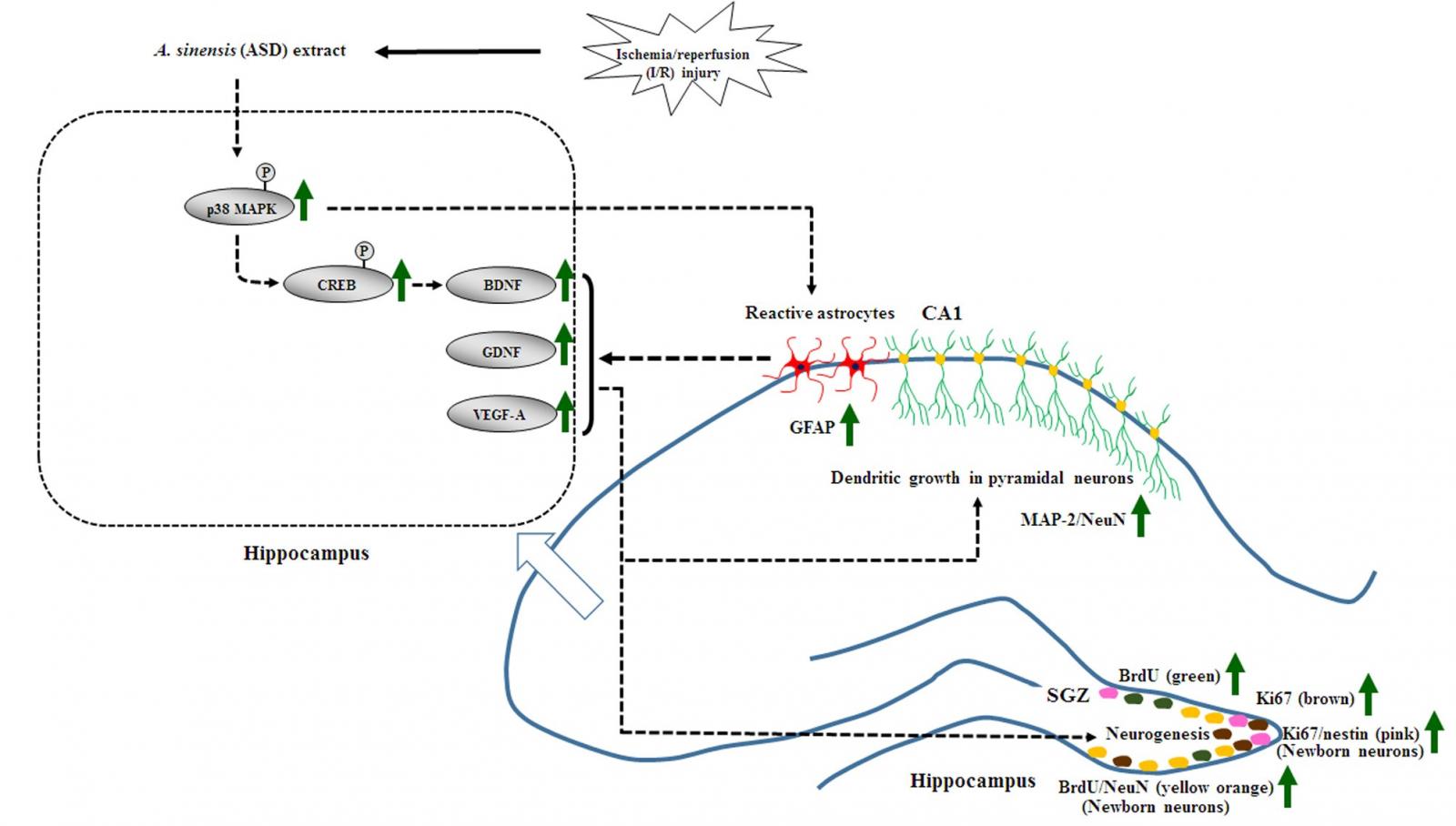學士後中醫學系程錦宜副教授研究
Angelica sinensis extract promotes neuronal survival by enhancing p38 MAPK–mediated hippocampal neurogenesis and dendritic growth in the chronic phase of transient global cerebral ischemia in rats
Journal of Ethnopharmacology, Jun 04, 2021
Ethnopharmacological relevance: Angelica sinensis (Oliv.) Diels (ASD), commonly known as Dang Gui, is a popular Chinese herb that has long been used to treat ischemic stroke. However, the effects of ASD in chronic cerebral ischemia and its underlying mechanisms still remain unclear. Aim of the study: This study aimed to determine the effects of the ASD extract on hippocampal neuronal survival at 28 d after transient global cerebral ischemia (GCI) and to investigate the precise mechanisms underlying the p38 mitogen-activated protein kinase (MAPK)-related signaling pathway’s involvement in hippocampal neurogenesis. Materials and methods: Rats underwent 25 min of four-vessel occlusion. The ASD extract was intragastrically administered at doses of 0.25 g/kg (ASD-0.25 g), 0.5 g/kg (ASD-0.5 g), 1 g/kg (ASD-1 g), 1 g/kg after dimethyl sulfoxide administration (D + ASD-1 g), or 1 g/kg after SB203580 (a p38 MAPK inhibitor) administration (SB + ASD-1 g) at 1, 3, 7, 10, 14, 17, 21, and 24 d after transient GCI. Results: ASD-0.5 g, ASD-1 g, and D + ASD-1 g treatments had the following effects: upregulation of bromodeoxyuridine (BrdU) and Ki67 expression, and BrdU/neuronal nuclei (NeuN) and Ki67/nestin co-expression in the hippocampal dentate gyrus (DG); upregulation of microtubule-associated protein 2/NeuN co-expression, and NeuN and glial fibrillary acidic protein (GFAP) expression, and downregulation of tumor necrosis factor-α/GFAP co-expression in the hippocampal CA1 region; upregulation of phospho-p38 MAPK (p-p38 MAPK), phospho-cAMP response element-binding protein (p-CREB), brain-derived neurotrophic factor (BDNF), glial cell line-derived neurotrophic factor (GDNF), and vascular endothelial growth factor A (VEGF-A) expression in the hippocampus. SB + ASD-1 g treatment abrogated the effects of ASD-1 g on the expression of these proteins. Conclusions: ASD-0.5 g and ASD-1 g treatments promotes neuronal survival by enhancing hippocampal neurogenesis. The effects of the ASD extract on astrocyte–associated hippocampal neurogenesis and dendritic growth are caused by the activation of p38 MAPK–mediated CREB/BDNF, GDNF, and VEGF-A signaling pathways in the hippocampus at 28 d after transient GCI.

